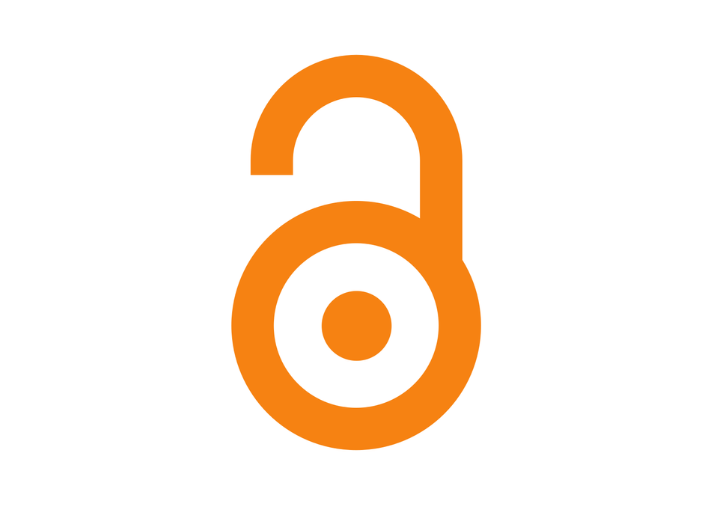
Contributing to responsive digitalization research: New Open Access Fund at the WI
08/03/2023The Weizenbaum Institute has launched a fund to support its scholars in publishing open access. We talked to Julian Vuorimäki, Open Research Officer at the WI, about the new funding opportunity, along with insights into the significance of open access and open research at the WI.
Julian, can you briefly outline what open access publishing means? Why should researchers publish their findings open access?
JV: These are two very important and exciting questions! Open access means that a quality-controlled publication is made openly available, without any cost barriers or other restrictions for readers and users. Publications can include scientific journal articles, books, edited volumes, conference proceedings, and increasingly encompass research data, visualizations, code, tools, or research software in general. The principles of this publishing approach were established in the influential 2003 Berlin Declaration on Open Access to Knowledge in the Sciences and Humanities. It necessitates the authors' consent to freely share their work in an appropriate standard electronic format and is deposited (and thus published) in at least one online repository using suitable technical standards.
From a researcher's perspective, an OA publication offers numerous advantages. It facilitates the swift availability of scientific results, thus promoting the dissemination of research outcomes beyond the scientific community. Several studies have demonstrated that openly accessible scientific publications tend to receive higher citation rates compared to traditional publications in closed, mostly subscription-based research journals.
Additionally, OA publications empower researchers by allowing them to retain control over their scientific results. Instead of relinquishing their rights to profit-driven publishing houses and information providers, scholars grant publishers simple, non-exclusive rights. Another important argument in favor of open access is the fact that research is predominantly funded by public resources. Consequently, research results should not be subjected to commercial exploitation but should be made available to the public without restrictions.
How can the WI's new publication fund support researchers in publishing open access? What costs can be incurred in the publishing process?
JV: The OA Publication Fund at the Weizenbaum Institute provides support to researchers in various ways. Firstly, it offers advisory services, helping researchers to identify and select appropriate publication venues for their work. Additionally, researchers can seek financial assistance from the fund when they incur costs related to publishing books or articles open access. Many prominent scientific publishers now make publications, such as articles in reputable journals, freely accessible, but they impose high book or article processing charges on authors. In such cases, the OA Fund can step in to financially support the researchers.
However, due to the often opaque nature of these fee calculations, there are certain limits to the costs that the fund can cover which are outlined in the funding criteria. For further assistance, scholars can reach out to openaccess[at]weizenbaum-institut.de at any time.
Open access is a subset of the effort towards open research. What else can institutions like the WI do to make science more open and accessible?
JV: Thank you very much for this question! In my opinion, the WI is already well-positioned to embrace open access and other facets of open research, including open research data, open research software, open educational resources, and innovative, open principles in research and career evaluation. These initiatives serve as a strong foundation for contributing to up-to-date, socially responsive digitalization research. The Institute’s mission statement demonstrates a clear commitment to openness, and its research covers almost all aspects of open research, particularly in the focus area Organizing Knowledge.
Furthermore, the WI offers a diverse range of its own open access publication formats, such as the peer-reviewed Weizenbaum Journal of the Digital Society (WJDS). Moving forward, these endeavors will be further enhanced and expanded. Apart from the OA Publication Fund, the Weizenbaum Digital Science Center and the soon-to-be-launched OA repository, the Weizenbaum Library, are valuable resources.
Additionally, the Open Research working group has been meeting since spring 2022 to consolidate thematic expertise from all participating disciplines and career levels. The group aims to support structural initiatives and strategic processes that foster a vibrant open research culture at the WI. Currently, we are engaged in several projects, including the development of a research data management policy. Additionally, we are formulating recommendations to enhance the visibility and collaboration opportunities for the WI by actively participating in relevant initiatives, such as the Berlin Declaration mentioned earlier.
Thank you for this interview!
Julian Vuorimäki is Open Research Officer at the Weizenbaum Institute. In this capacity, he assists the Institute’s researchers in integrating the values and principles of open research throughout the entire research process as fundamental elements of good research practice and research integrity in the digital era.
Interview by Moritz Buchner.